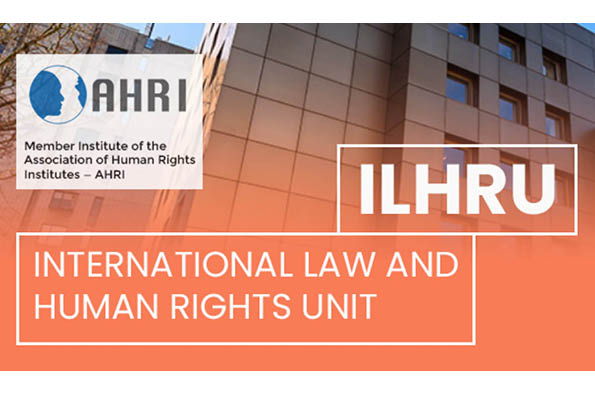
ILHRU Guest Seminar: The contribution of constitutional control to the symphony of law-making activity as an element of transitional justice (Ukrainian case)
- Marketing, Recruitment and Events
- Admission: Free event: Please register
- Event website
- Book now
Add this event to my calendar
Click on "Create a calendar file" and your browser will download a .ics file for this event.
Microsoft Outlook: Download the file, double-click it to open it in Outlook, then click on "Save & Close" to save it to your calendar. If that doesn't work go into Outlook, click on the File tab, then on Open & Export, then Open Calendar. Select your .ics file then click on "Save & Close".
Google Calendar: download the file, then go into your calendar. On the left where it says "Other calendars" click on the arrow icon and then click on Import calendar. Click on Browse and select the .ics file, then click on Import.
Apple Calendar: The file may open automatically with an option to save it to your calendar. If not, download the file, then you can either drag it to Calendar or import the file by going to File >Import > Import and choosing the .ics file.
Abstract:
Countries that have experienced periods of conflict and repression, or now are in a state of war, are constantly faced with large-scale or systematic violations of human rights. They are massive and numerous, bold and serious. While human rights law cannot always respond adequately, international law and transitional justice are trying to find an answer to such questions because its concept is based on the principles of establishing the truth, respecting human dignity, and reparation for victims.
A decent society that respects human rights cannot be built without fundamental constitutional and conventional values. The destruction and devastation of such values make the country unstable, unable to defeat the enemy, resolve the conflict, build a system of state human rights protection bodies, restore peace, and establish justice. The bridge of communication between the state and the person is the fundamental embodied in the constitutional prescriptions.
During the full-scale destructive war in Ukraine, constitutional control, as an element of the state system of legal protection of fundamental values and guarantees for the protection of human rights, embodies the will of the people to establish peace, freedom, equality, respect for human dignity and protection of human rights in the state.
The article focuses on improving the national legislation of Ukraine regarding the protection of human rights in the transitional and post-war periods. The purpose of such actions should be, on the one hand, to confirm the contribution role of the Constitutional Court of Ukraine to restore human rights and, on the other hand, to improve constitutional control on the stage of adopting and amending laws. Despite the fact that in Ukraine, the basic principle of the division of power into three branches is declared, the Constitutional Court is not a part of any of them. It is not part of the judicial system, although it is called a court. Furthermore, it has a separate special status and its most important mission - is to examine whether the law corresponds to the Constitution of Ukraine which is the Fundamental Law. It should ensure and guarantee the stability of the legal system and legal certainty. If we talk about constitutional control in peacetime, long-term processes can be explained by some political facts. But now there is a real war going on in Ukraine, and all the components of transitional justice must work properly and efficiently. Some of them can be implemented only after the end of the war, some depend on the occurrence of certain facts - criminal prosecution, reparations, compensations, but institutional reforms can be introduced already.
Now and in the post-war period, the task of transitional justice is to prepare legislation for the implementation of institutional reforms for the purpose of transitional justice to generate respect and trust in society. Although it has certain powers and responsibilities within the legislative process, unlike the parliament, it does not simply formulate the rules of behavior of a participant in legal relations and the specifics of their regulation. It ensures compliance with constitutional principles, among which the main social value is a person, his life, and dignity.
